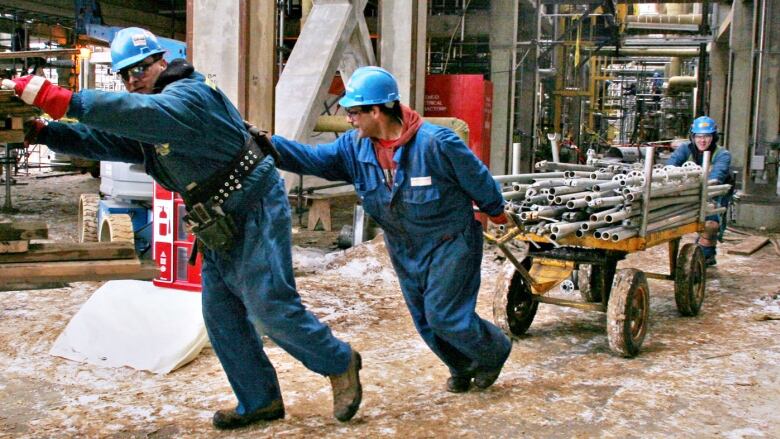Recession predicted for Edmonton, Calgary following oil price fallout
Calgary expected to see economy shrink by 1.2 per cent, while Edmonton forecast for 0.8 per cent loss

Alberta is likely already feeling the effects of a mild recession and is set to fall behind the rest of the country in growth, according to a report released this week by the Conference Board of Canada.
The organization's Metropolitan Outlook compared growth forecasts for 13 cities across the country. Both Edmonton and Calgary ranked at the bottom of the list, with economies that are expected to shrink by 0.8 per cent and 1.2 per cent, respectively.
"It's a complete reversal of fortune from what we've seen in previous years," said Alan Arcand, associate director of the board's Centre for Municipal Studies.
While previous outlooks have put cities in Alberta and Saskatchewan at the top of the list for growth, the new report ranks Halifax, Vancouver and Toronto as the country's fastest-growing economies. All three cities are expected to see their economies expand by 3.1 per cent.
While dropping oil prices might have been the catalyst, Arcand said the province's construction industry is likely to be hardest hit, ascompanies slowdown work on new projects.
Arcand said the conference board predicted the bulk of the shrinkage to take place in the first half of the year, and noted that "the worst is probably over." However, while the report suggests modest growth for theprovince's economy next year, Arcand doesn't expect it to return to what the province has grown accustomed to.
"Between 2010 to 2014, the Edmonton economy expanded at a rate of about 6 per cent per year. Which is just an incredible pace," he said.
"We think those days are over for now."
Despite the recession, Arcand said employment in both cities is expected to rise slightly.
'Tough call' for government
Arcand said the economic slowdown probably won't have an effect on the construction projects currently going on in downtown Edmonton. But he predictsbusinesses will hold off on announcing any new construction as the economy shrinks.
Residential construction is most vulnerable, he said, with home sales expected to slump as buyers hold off on major purchases.
When faced with a slowing construction industry and shrinking economy, Arcand said it would likely be a good time for the government to boost its spending. However, given an expected deficit and already tight finances, he is worried the province might not be in a position to do so.
"It may be a good time to boost government infrastructure spending. This is rare time where there might be a little bit of slack in the labour market."
"(But) there's not a lot of room to increase spending and shift funds so it's a really tough call for the government. "












_(720p).jpg)


 OFFICIAL HD MUSIC VIDEO.jpg)
.jpg)



























































































